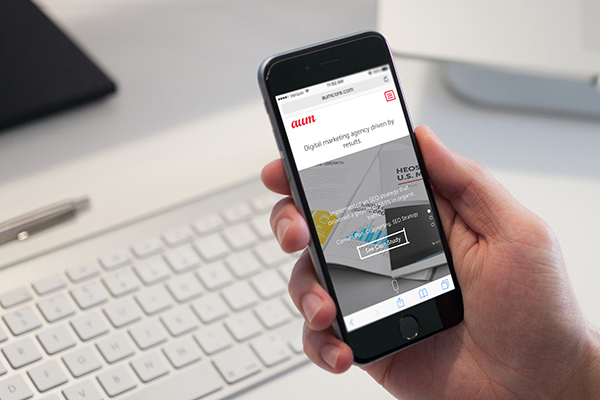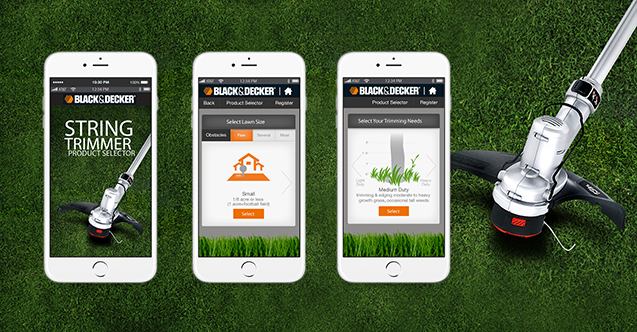A website is often the first thing a potential customer sees when considering where to spend his hard-earned money. It’s the face of a company and first impressions are lasting ones. After all, what’s more trustworthy, a website that looks as though it froze in the late nineties and hasn’t changed since, or one with a modern design and seamless user experience worthy of starring in the latest AI thriller? If you chose the latter you’ve most likely thought about hiring a web development agency to handle what may ultimately be a make or break a situation. Before you take the dive, here are 10 key factors to consider when hiring for a web development company to create your digital calling card.
4 Questions You Need To Ask Yourself
1. What’s Your Business Like?
Do you have an online store for consumers or are you a large B2B corporation? You might want to think about incorporating enterprise web development services into your playbook if it’s the latter. A business that has had experience managing large accounts and amounts of data is one indicator they’ll know how to handle the many facets of your company.
The next step is to use a platform such as Drupal to manage your web content. Drupal is one of the most secure content management systems out there, and has a large support community willing to help you or your agency out if you run into any problems. If it’s the former and you’re planning on either starting an ecommerce business or migrating one from another platform, consider Magento or Shopify. Both support all the standard requirements of eCommerce businesses, and feature an intuitive backend to help you manage small changes such as adding new products or updating your “about” section.
2. Do You Foresee Your Website and Business Expanding in the Future?
Scalability is important if you expect a lot of traffic on your website. The last thing that you want is to hit a boom in your business only to see your website crash before your very own eyes. If you start small and don’t expect your servers to overload any time soon don’t bother shelling out the big bucks for a website that can handle millions of users at a time. Leave that to bigger websites like Weather.com or Grammy.com that continually experience spikes in traffic.
3. Will Your Website Be Mobile Friendly?
Nowadays the answer to this should always be yes. Pew Research reports that “nearly two-thirds (64%) of U.S. adults own a smartphone, up from 35% in 2011.” Moreover, a subset of this population (7%) relies entirely on their smartphone for internet access. With these growing numbers it’s not a question of being mobile friendly or not as much as it is about deciding to implement a responsive design.
Responsive differs from mobile friendly in that it adapts based on the user’s needs. Images are optimized, navigation is condensed, and the layout scales depending on the size of the screen. Choose an agency that’s well versed in not only mobile-compatible sites, but mobile sites as well.
They will have the best experience in guiding you regarding which choice is best for your business. With Google’s newest update prioritizing mobile sites, some agencies are now recommending a mobile-first approach, in which the mobile site actually takes priority over its desktop version.
4. Do You Want an Original Website or One Built Off a Template?
Go for an original website if adaptability’s important for you. It’ll be more expensive, but it offers more possibilities in terms of company branding and customization. You can tailor it to fit your needs and change it accordingly.
Keep in mind that custom built websites are more expensive and take longer to create than opting for a template. If, on the other hand, you’re constrained by time and money, building a website off a template may be better for you. Take a look at this post by Go-Globe if you want a more comprehensive list of pros and cons to both types.
6 Questions to Ask a Web Development Company Before Choosing Them
With the basic questions answered and your ducks somewhat in a row, you can start looking at the next step: appointing a web developer to bring your vision to life.
When it comes to looking at how to choose a website developer, there are a few important questions that you need to ask to ensure that it’s the right fit for your business. The last thing you want is to waste time and money on building an ill-fit website that will need to be redesigned anyway.
1. Have you worked on a similar project in the same industry?
Have you worked on a similar project in the same industry?
While this is not so important if your business operates in a unique or complex industry, the knowledge is needed to make your website design process easier. Lack of experience could be costly and result in a redesign by a more experienced developer. Just as it is an advantage to hire an employee who previously worked in your sector, it is also advantageous to choose a web development partner with experience in your field. It is very difficult for a digital agency to provide useful recommendations on content, site architecture, and user experience if they do not have the expertise. But at the same time, find a partner with experience in other industries. While someone who works exclusively in your industry and niche can provide a lot of information, they may not bring best practices and ideas that may have come up as a result of working in other sectors.
2. How big is your team, and will everything be done in-house?
You need to know if they have the right resources available to get the job done. If they outsource certain roles, you need to be assured that the third-party contractors will fit in with the project timeline and deliver accordingly.
Just because someone says that they can do everything does not mean that they actually can. The first thing to consider is whether they can do what they’re promising. They may be qualified, but have they done it before? If not, who will they put in charge of managing the task? At the end of the day, you can read and study as much as you want about developing a website, but unless you have the experience you’ll probably not be as good as someone with a proven track record.
3. What is the average timeline of your projects?
Knowing the projected amount of time, it will take to develop your website is beneficial if you’re paying hourly rates or are under a time constraint. Not only is this important because you might be under a tight schedule, but it also gives you an insight into the quality of their work. There’s always a balance between the amount of work given and the projected time it will take to complete. Website development is usually done in phases and can take months to complete. Don’t go for the company that promises stellar results in record time. Take a look at this article to get an idea of the whole process involved without cutting corners
4. What are your web design and implementation process?
How do they work, and more importantly, how will this contribute to the successful launch of your website? This process plays a huge role in website design and development, and it can vary considerably from agency to agency. Each digital agency has its own internal process that governs its projects, and some are better than others. Knowing what the process is, how it will be implemented and how it will ultimately affect you and your business will help you better understand your project and its needs. It is also important to know who is involved in the project and what is the role of each person.
5. What is your approach to online visibility and what marketing tools are used?
If you were to do a quick Google search for ‘SEO,’ you would find that there are a little over half-a-billion total results, listed in 10 per page. Think about that for a second and then consider that 75% of Google users never scroll past the first page. Cue the philosophical discussion of a tree not making a sound if it falls in a forest with no one there to listen. As easy as it is to see why SEO is important, you might still be undecided about whether or not to incorporate it into your website. If that’s the case, you can always check out the many blog posts out there with advice for getting an SEO agency that’s right for you.
6. What after-care services do you offer?
If updating your content is important to your team, but you’re not sure of your skills, it’s a good idea to ask your developer about the training they can provide for your team.
In addition to this, your relationship with the website development firm should not end with the launch of your site. The agency you choose to work with must have a range of services and in-depth knowledge to measure the success of your site. After launch, request samples and interpretation of data. Remember that any website designer can launch a website – this is what happens after launch, which is essential for your business.
The Take-home
One thing’s for sure, whether or not you decide to launch an SEO campaign, your site should have the building blocks in place in case you decide to move forward with it in the future. Therefore, it’s important to make sure your site is SEO friendly from the start. The same goes for being mobile friendly. It’s one of the considerations you should be making before getting in touch with any web development company.
The first step is knowing your business and the second is knowing your options. This means thinking ahead and formulating a plan. Do you see your business growing? Will an original design or a template be better suited for you? What about the backend? After you’ve answered these questions it’s time to weigh your options and choose a company. For this you want to compare reliability, services, pricing and timing. If all goes well you should have a good idea of how you want to proceed. Good luck!





Tell us your thoughts in the comments